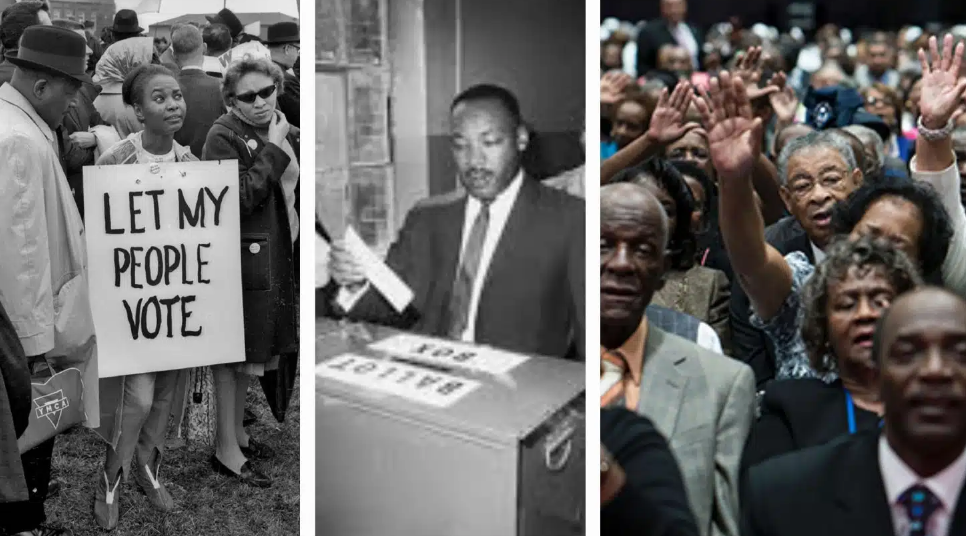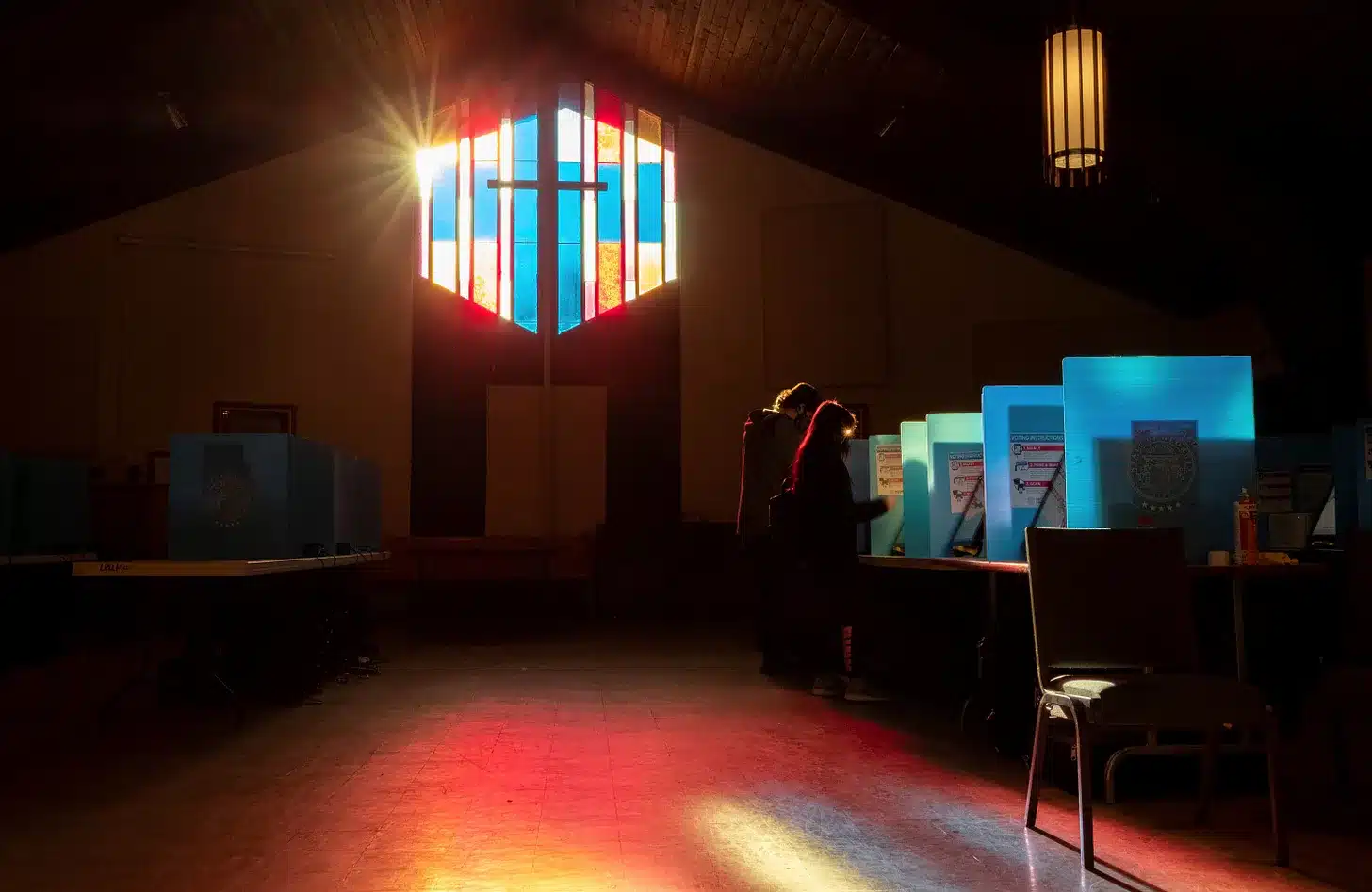- BlackVoter.Org
- Posts
- BLACKVOTER.ORG #131
BLACKVOTER.ORG #131

In the run-up to the 2024 presidential election, Donald Trump is gaining surprising support among some Black voters, leading to questions about the Democratic Party's hold on this essential demographic. While recent polls indicate that a notable percentage of Black men under 50 are backing Trump, the reality is that he offers no genuine solutions to the challenges facing Black America.
Instead, Trump's history and political record reflect systemic racism and a failure to address critical issues like police brutality and healthcare. Meanwhile, Vice President Kamala Harris struggles to rally support, caught in a cycle of broken promises and shifting positions that frustrate voters.
With many feeling disillusioned by both major parties, there's a growing call for a viable third-party alternative that authentically represents the interests of the working class. This sentiment highlights the ongoing need for collective action and independent movements to advocate for true change.

The journey of African Americans to gain voting rights has been a remarkable saga of struggle and resilience. It began with the passage of the 15th Amendment on February 3, 1870, a significant win that prohibited voting discrimination based on race, yet the promise of this amendment remained elusive for many due to oppressive practices like literacy tests and poll taxes, especially in the South.
The tide turned during the Civil Rights Movement of the 1950s and 60s, led by iconic figures such as Martin Luther King Jr. and organizations like the NAACP, pushing for change through protests and advocacy.
Their relentless efforts culminated in the Voting Rights Act of 1965, which outlawed racial discrimination in voting. Despite ongoing challenges, African Americans have made significant strides in political representation.
As we approach the upcoming elections, it's vital to honor and reflect on the hard-fought right to vote that so many have strived for.

In a bold political maneuver, former President Donald Trump has declined Vice President Kamala Harris's invitation for an October debate. The call for a debate, aimed at energizing voters ahead of the upcoming election, was met with Trump's characteristic defiance.
This move underscores the growing tension in the political arena as both parties gear up for a highly contentious campaign season. While Harris seeks to foster dialogue and engage with the electorate, Trump's decision reflects his strategy of maintaining a stronghold without direct confrontation.
As the clock ticks down to the election, all eyes will be on how these political dynamics unfold.

In the latest episode of “Race Unwrapped,” historian Carol Anderson delves into the ongoing struggle against voter suppression faced by Black Americans, dating back to the 15th Amendment. Despite the abolition of overtly discriminatory practices, modern tactics still echo the past, as Anderson reveals through discussions of poll taxes and literacy tests that were designed to disenfranchise Black voters.
Today's laws, such as felony disenfranchisement in places like Florida, disguise these obstacles as legitimate. With insight into the historical and contemporary landscapes of voting rights, Anderson sheds light on the persistent targeting of Black communities.
This season promises to broaden our understanding of how race and democracy intersect, emphasizing that the fight against suppression continues. Tune in to grasp the historical echoes that shape today’s political climate and hear from those actively working to make voting accessible for all.

Kamala Harris, the trailblazing Vice President of the United States, is making waves as she gears up for the upcoming presidential election. Elected in 2021, she made history as the first woman, first African American, and first South Asian to hold this office.
With a background as a U.S.
Senator and California's Attorney General, Harris has championed vital reforms, from combating hunger to addressing climate change. As the campaign heats up against Donald Trump, she's actively fundraising and connecting with voters, raising a staggering $27 million in New York alone.
Recent polls show a tight race, especially in crucial states like Arizona and Georgia. Harris aims to solidify support with fresh economic policies and has also been vocal about critical issues including gun control and abortion rights.
With endorsements, fiery debates, and a rapidly shifting political landscape, all eyes are on her as November approaches.

A new report titled the "Black Values Survey" uncovers the intricate dynamics within the Black community in critical swing states such as Michigan, Georgia, and Pennsylvania. Conducted by three nonprofits over four years, the survey reveals that while a significant portion (41%) of Black individuals feel empowered to effect change, a striking 22% are deeply cynical about politics.
The research emphasizes that the Black electorate is no monolith; it comprises diverse values and priorities that need to be understood and respected. The findings highlight five distinct clusters within the Black community, reflecting varied experiences and motivations.
As advocacy groups push to engage Black voters, the study underscores the importance of listening and empathizing with the community's lived experiences to inspire genuine political participation. This deep dive into the Black electorate challenges traditional campaign strategies, urging a more nuanced approach to outreach and engagement as the 2024 election approaches.

As the 2024 U.S.
election approaches, conversations swirl around its significance—could it truly be the most critical in American history? Prominent voices, Michael McKenna and Rev. Dr.
Teresa Smallwood, weigh in: while elections reflect existing public sentiment, they also hold immense power to shape the future. McKenna argues these contests measure beliefs rather than enact transformation, asserting that no single election determines the nation's direction due to the complex distribution of governmental power.
In contrast, Smallwood emphasizes the election's potential to uphold democracy, citing increased voter suppression as a troubling sign of its importance. Ultimately, both experts agree that while elections are vital, they serve as a barometer of public will rather than a definitive shift in governance.
As citizens gear up to vote, the emphasis is clear: participation is crucial to defend democracy and ensure every voice counts.

A recent AP-NORC poll reveals that most Americans don’t perceive Vice President Kamala Harris or former President Donald Trump as particularly Christian, despite their religious backgrounds. Just 14% of U.
S. adults say the term "Christian" applies to them either "extremely" or "very" well.
While Harris, a Baptist influenced by her Indian heritage, garners favorable views from Black Protestants—75% see her positively—only 42% believe "Christian" describes her well. In contrast, Trump's appeal remains strong among white evangelical Protestants, with about 70% favoring him, although only 20% believe “Christian” fits him closely.
The poll reflects shifting dynamics in how morality is perceived in politics, with many believing that Trump's actions, regardless of his faith, are for the greater good. Evaluating honesty and morality, neither candidate excels.
With both the Democratic and Republican bases divided, the 2024 election raises questions about the intersection of faith and politics in America.